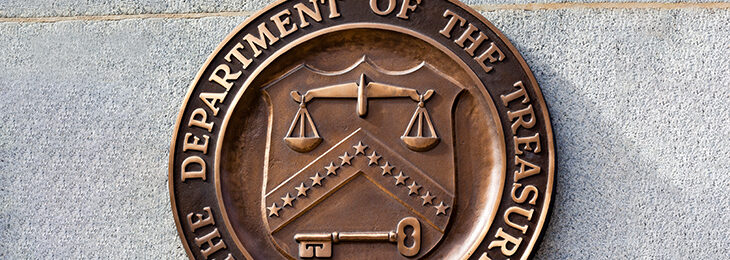
As the year came to an end, a new crime fighting unit came to life. On December 20, 2012, resolution 914/2012 was signed into law creating Procuraduría de Criminalidad Económica y Lavado de Activos (PROCELAC) a new unit within the attorney general's office designed to combat money laundering and other economic crimes.
PROCELAC replaced three internal units of the Argentine Prosecutor's Office: the Prosecuting Unit for the Investigation of Tax and Smuggling Crimes (UFITCO) for tax and customs crimes, illegal trafficking of cultural assets, brands, patents, and intellectual property; the Prosecuting Unit for the Investigation of Money Laundering and Terrorist Financing Crimes (UFILAVDINTER) for money laundering and terrorist financing crimes, and the Office for the Coordination and Monitoring of Offenses against Public Administration (OCDAP) for cases of corruption and fraud against the government. PROCELAC will be led by a general prosecutor who will coordinate and direct the performance of six operational areas: Money Laundering and Terrorist Financing, Economic and Banking Fraud, Capital Market, Tax Crimes and Smuggling, Crimes against Public Administration and Bankruptcy. Each operational area will be led by a coordinator.
PROCELAC will also be equipped with an administrative area, which will be responsible for the registry of evidence, reception desk and documental files. And finally the technical support area will include: assets recovery, technical investigations, technical consultancy and computer support.
It has to be stressed that both general prosecutor and the six coordinators of the operational areas, with the exception of the field of bankruptcy, will work full time in the roles to which they were appointed.
The general prosecutor in charge of PROCELAC is responsible for coordinating the operational areas, acting as the primary or contributory attorney in relevant cases, intervening when the administration requests and performing acts that require judicial authorization as appropriate, receiving complaints, and carrying out together with the coordinator of the corresponding operational area and preliminary investigations. The general prosecutor is also tasked with prioritizing interventions of ad hoc attorneys in cases where it is appropriate to strengthen the representation of the attorney general's office (i.e., cases with institutional importance and socioeconomic impact). In addition, the general prosecutor is responsible for proposing to the attorney general's office training programs, legislative reform projects, protocols, cooperation agreements with agencies of the federal, provincial or municipal government or international organizations, as well as any other initiatives deemed necessary for the performance of their duties.
Coordinators to operational areas will:
- Intervene as ad hoc prosecutors in cases that deal with facts of the specialty of their operational areas
- Maintain complete and updated records of the different manifestations of economic crime, for which they must request the necessary information to the relevant sites of attorney general's office;
- Develop a database on the cases of reference, in order to detect common patterns to anticipate areas of institutional risk and guide further researches;
- Prepare periodic reports on the status of processes, progress and constraints encountered;
- Design research strategies to clarify events of economic crime and recovery of assets involved;
- Monitor and perform continuous studies of national and international case law that may have an impact on the processing of these cases;
- Provide technical advice and the necessary assistance to prosecutors involved in the investigation;
- Provide links and interagency actions with specialized agencies in the field, in order to improve investigations and prosecution of cases of their specialty; the technical support area is in charge of providing technical support to the general prosecutor and the coordinators of the areas. This area is in charge of:
- The overall registration and systematization of information resulting from the activity of each operational area,
- Analysis, development, and implementation of policies of general application and specific measures to the recovery of assets of illicit origin
- Perform expert tasks that were assigned, subject to the dictates of their art, science or technique;— Advise the general prosecutor and the coordinators by providing specific knowledge;
- Aid PROCELAC in the tasks of database query, incorporation, organization and intelligible communication of information of an economic nature;
- Aid in the recovery of assets linked to acts of economic crime;
- Develop and implement strategies and methodologies for the investigation of complex facts of economic crime
- Detect recurring patterns on the use of special techniques or devices applied in their area of expertise for the commission of economic crimes;
- Design and manage a system of computer record of the activities of the PROCELAC.
The administrative area will be responsible for the public's attention, the management of the reception and delivery desk, the registration system of the evidence and documental files. In other words, their work will be circumscribed to the organization and implementation of the tasks related to the structural support and administrative management of the unit.
This new unit has the backing of various civil society organizations such as the Institute for Comparative Studies in Criminal and Social Sciences (INECIP), the Penal Thinking Association, the Center for Research and Prevention of Economic Crimes (CIPCE) and Compliance Monitoring Committee of the Inter-American Convention against Corruption.1 The INECIP, institution chaired by renowned specialist David Baigún, noted that PROCELAC "will adjust, within the limitations that retains the current procedure code, the criminal investigation to a modern justice system efficient and less selective, they also provide a basis to begin to discuss a comprehensive reform."2
In summary, this new organization is a step forward in the fight against economic crime and money laundering and this new unit it is expected to revert the low impact on prosecutions of complex cases of economic crimes, and eventually obtain effective judicial responses in a reasonable time. With that said, compliance professionals will have to be more alert and attentive as PROCELAC will have more resources, organization, coordination inter-areas and dynamism to follow the money trail in order to recover assets, make confiscations and convictions.
The need to adopt new strategies, developments, and institutional arrangements to boost the investigative capacity and efficacy of the criminal prosecution on the matter is revealed by the change in the global context, the complexity of criminal modalities and the international commitments undertaken by Argentina. This new unit will allow the Argentine Prosecutor's Office to rise to the challenges faced by Argentina.
Tadeo Leandro Fernández, attorney, legal counsel for Argentina FIU, Buenos Aires, Argentina, tadeofernandez@derecho.uba.ar or tadeofernandez@hotmail.com
- Argentine Prosecutor's Office, News, (December 27, 2012), available at URL: http://www.mpf.gov.ar/index.asp?page=/ReporteNoticia.asp?IdRegistro=692 (last accessed 29/01/2013).
- INECIP, Press release, (December 21, 2012) available at URL: http://es.scribd.com/doc/117628090/Creacion-de-la-Procuraduria-de-Criminalidad-Economic-a-y-Lavado-de-Activos (last accessed 29/01/2013). Furthermore, the "Civil Association for Equality and Justice" (ACIJ) also adhered to that statement. ACIJ, News, (December 21, 2012) available at URL: http://acij.org.ar/sin-corrupcion/2012/creacion-de-la-procelac/ (last accessed 29/01/2013).










